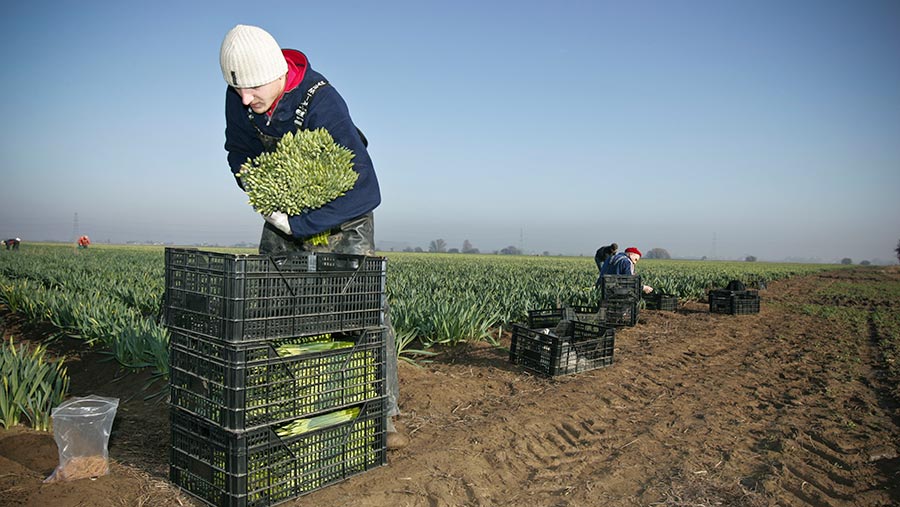Opinion: Maintain the focus to keep staff safe from pandemic
 © Tim Scrivener
© Tim Scrivener Like a lot of farmers, I have to confess that I am having a good Covid-19 pandemic. If ever there was a right time to be a bald, childless, potato grower living in the middle of nowhere, it is now.
Just from their miniature pictures on Zoom calls, I can see that my urban friends and colleagues are having a much harder time with the pandemic.
Their eyes are sunken, their skin is grey and they look prematurely aged by vitamin D deficiency and the trauma of trying to home educate unwilling children.
See also: Beware complacency when it comes to farm safety
Some are working from laptops propped on top of their washing machines because it’s the only quiet space they can find. It would be bad enough being a prisoner in such circumstances without having your sense of claustrophobia accentuated by a massive, overgrown and ridiculous head of hair.
I once used to envy people in urban areas with easy access to cool bars, theatres and restaurants. Now I appreciate that there is an upside to living on the bleak, uninhabited plains of Holbeach Marsh.
I realise that for some families it has been stressful, catastrophic and, in some cases, tragic. It is unfair how unequally the effects of the pandemic have been on the population.
There will come a time when those of us who have been fortunate in life are called upon to play our part through higher taxation. We must try to bear this with a smile on our faces.
Our current focus must be on keeping our individual ships upright through the storm. After a difficult year on our farm in 2019, I am hopeful that our financial performance will be better this year.
The trade for British cut flowers recovered quite well after the initial effects of the pandemic. Event floristry is obviously suffering from a lack of weddings and public gatherings, but supermarket demand is similar to last year and our sales are actually up.
Importing fresh produce has been more difficult with the lack of passenger flights. Many growers in Holland reduced their production in anticipation of a drop in demand and so there has been a shortage of supply there.
Customers are being forced to buy home-grown flowers as their only option and we have to hope that they will be encouraged to do the same next year as well.
My main concern has been for staff welfare. We have learned that we are able to do a lot of our management tasks remotely and have moved everyone out of the office. It has also been straightforward to allocate tractors to individual operators.
Keeping our flower croppers distanced is relatively easy in a field too, but the shared welfare facilities and transport between fields present our greatest challenge of stopping the transmission from non-detectable carriers of the virus.
We are doing our best based on the current guidelines but, without a vaccine, it isn’t going to be possible to eliminate the risk entirely.
To those of us who employ teams of people on our farms, the recent case where a group of vegetable croppers were infected in Herefordshire demonstrates that rural communities are at just as much risk as urban ones and we mustn’t be complacent.
We may have had a good pandemic so far, but it would not take much for us in the countryside to suddenly experience the downside.
